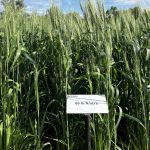CNS Canada, Oct. 16 — The following is a glance at the news moving markets globally.
KENYA PROMPTED TO CUT EXPENDITURE BY IMF AND WORLD BANK – The World Bank and International Monetary Fund advised the Kenyan government to stop spending on non-priority projects.
The country’s treasury has been borrowing shillings at a high interest rate, and economists say the government needs to cut the budget deficit and stop growing debt by cutting nonessential projects.
YUAN HAS CASE TO JOIN IMF’S RESERVE ASSET – China’s currency, the yuan, could become part of the International Monetary Fund’s SDR basket.
Read Also

U.S. grains: CBOT soybeans, corn, wheat fall in USDA data aftermath
Chicago grains took a dive on Friday, following a closely watched U.S. government crop report and the release of export data that could provide clues into Chinese buying.
An economist from the IMF said Friday that she saw sound evidence for the yuan to be included.
The SDR is an international reserve asset meant to supplement member countries’ reserves.
INDONESIA WILL LIKELY NEED TO SELL MORE OIL TO REJOIN OPEC – Indonesia has put in a bid to reactivate its role in the Organization of the Petroleum Exporting Countries (OPEC).
But a U.S. analyst says the country will likely need to import more oil to meet its domestic demand.
At the beginning of the year the Indonesian government estimated the country was holding about 5.2 billion barrels of oil equivalent, and about half of that was crude oil.
MINING GIANT CUTS BACK ON PRODUCTION AS COMMODITY PRICES SLUMP – Rio Tinto, a multinational mining and metals company, is cutting back on niche commodity production due to weakness in commodity markets.
The company announced Friday it would be pausing production of some commodities, including diamonds and salt, amid broad-based weakness in commodity markets.













